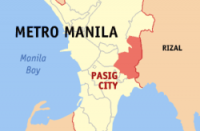MANILA, July 18 – Department of Budget and Management (DBM) Secretary Benjamin E. Diokno in his first sit-down press conference today told the media the department’s preparations for the 2017 budget under President Rodrigo R. Duterte’s administration.
Secretary Diokno, a two-time budget secretary, said that the budgets for 2017 until 2022 will support the president’s promise to improve the country’s infrastructure, invest in human resources, modernize agriculture and rural development, and develop lagging regions.
For Fiscal Year (F.Y.) 2017, the Development Budget Coordination Committee (DBCC) will recommend to President Rodrigo Duterte a total obligation budget of P3,350.0 trillion to be proposed to Congress. The 2017 budget is higher by 11.6 percent than the current year’s budget of P3,001.8 trillion. As a percentage of GDP, the 2017 budget represents 20.4 percent compared this year’s 20.1 percent of GDP.
Sources of appropriations
There are two appropriations cover for the 2017 budget: (1) New General Appropriations and (2) the Automatic Appropriations. The general appropriation pertains to the annual appropriations under the General Appropriations Act (GAA), while the automatic appropriations is an authorization made annually or for some other period prescribed by law, by virtue of standing legislation which does not require periodic action by the Congress of the Philippines.
The new general appropriations amounts to P2,480.5 trillion which represents 74.04 percent of the total budget. It includes P2,393.0 trillion of programmed appropriations which have definite or identified funding as of the time the budget was prepared and unprogrammed appropriations ofP87.5 billion, 29.63 percent or P20.0 billion higher than the approved level of P67.5 billion in 2016. The increase/decrease is mainly due to the provision of P20.0 billion for payment to Philippine International Air Terminals Co. Inc. (PIATCO).
Automatic appropriations
Meanwhile, the automatic appropriations amount to P957.0 billion or 28.6 percent of the proposed budget. The bulk of which are as follows: Interest Payment on NG Debts (P358.7 B); IRA (P486.9 B); Net Lending (P26.5 B); RLIP (P37.9 B); Special Account (P21.6 B); Tax Expenditure (P25.5B); and Pension of Ex-Presidents/Wives (P0.331B).
DepEd, DSWD, DOH budgets
The DBM will propose an approximate amount of P118 B for the construction of school buildings, which is a 44 percent increase compared to its F.Y. 2016 budget. The Department of Social and Welfare Development’s (DSWD) Pantawid Pamilyang Pilipino Program (4Ps) would have P54.9 B with a physical target of 4,402,253 households, and approximately P17.9 B will be allocated for 2,809,542 senior citizens under the Social Pension for Indigent Senior Filipino Citizens. The government subsidy for health insurance premium payments for indigent families will also get a 15 percent increase in the F.Y. 2017 budget proposal, or approximately P50 B.
Secretary Diokno maintained that he wants the budgets under the Duterte administration to be strictly compliant with the Supreme Court decision on the Disbursement Acceleration Program (DAP) and the Priority Development Assistance Fund (PDAF).
Clarification on the alleged P80-M pork barrel per lawmaker
Sec. Diokno said that the alleged “P80-M pork barrel per lawmaker” in the proposed 2017 budget is only hypothetical. Priority Development Assistance Fund (PDAF), or more commonly known as “pork barrel”, which refers to lump-sum, discretionary funds of members of the Legislature, has been declared unconstitutional by the Supreme Court in the case of Belgica, et al. vs. Honorable Secretary Paquito N. Ochoa, Jr., et al., G.R. No. 208566, November 19, 2013, mainly for the violation of the principle of separation of powers. Any law which empowers individual legislators to interfere in the implementation or enforcement of the budget violates this principle and is, therefore, unconstitutional. After the budget is passed, members of Congress may only scrutinize and investigate the way the budget is enforced and implemented.
“Although the main function of a legislator is to make laws, he or she is not prohibited from proposing to the head of the agencies programs, activities or projects which his or her constituents brought to his or her attention to be financed by the national government. It must be remembered that legislators are representatives of their constituents and are thus, in the best position to determine the needs of their people. To be able to serve well their constituents and to maximize the salaries given to them, members of Congress, as representatives of the people, can ensure that the needs of his or her legislative district or party-list are met by the national government. Further, the funding for such programs, activities or projects will not be released to the individual legislator but to the agencies which incorporated them in their respective budget”, Diokno said.
“It is clear from the PDAF case that what is prohibited is post-enactment intervention by individual legislators. Any participation such as proposing programs, activities or projects to head of agencies, which may be adopted or not, will be included in the proposed 2017 budget line by line stipulating the amount per proposed program, activity or project. This is not prohibited by law and in fact an affirmation of the power of the purse given to Congress”, Sec. Diokno added.







